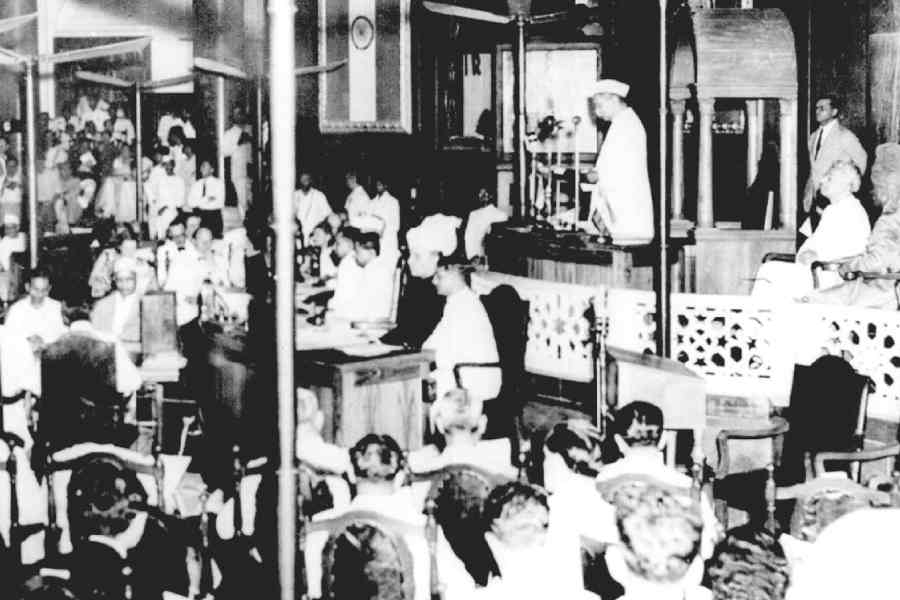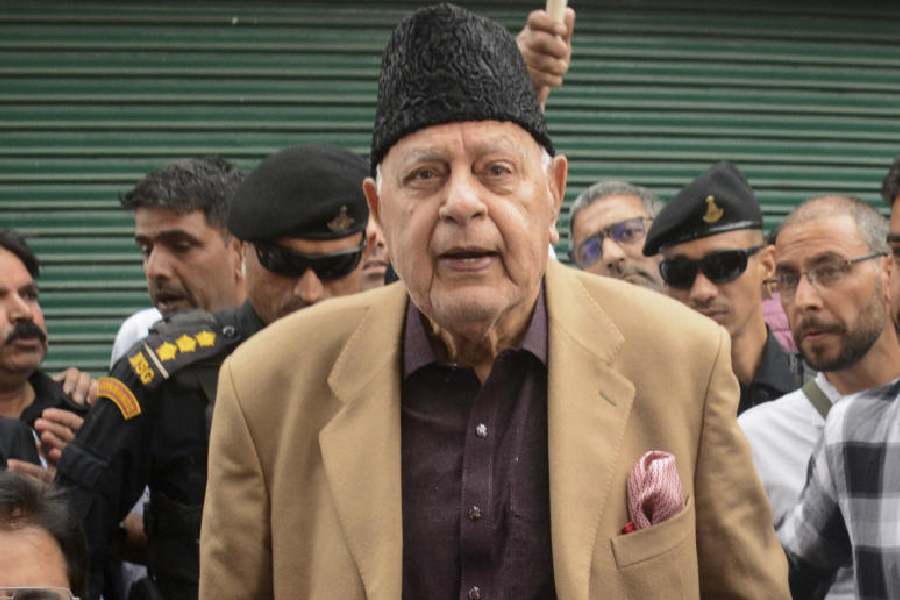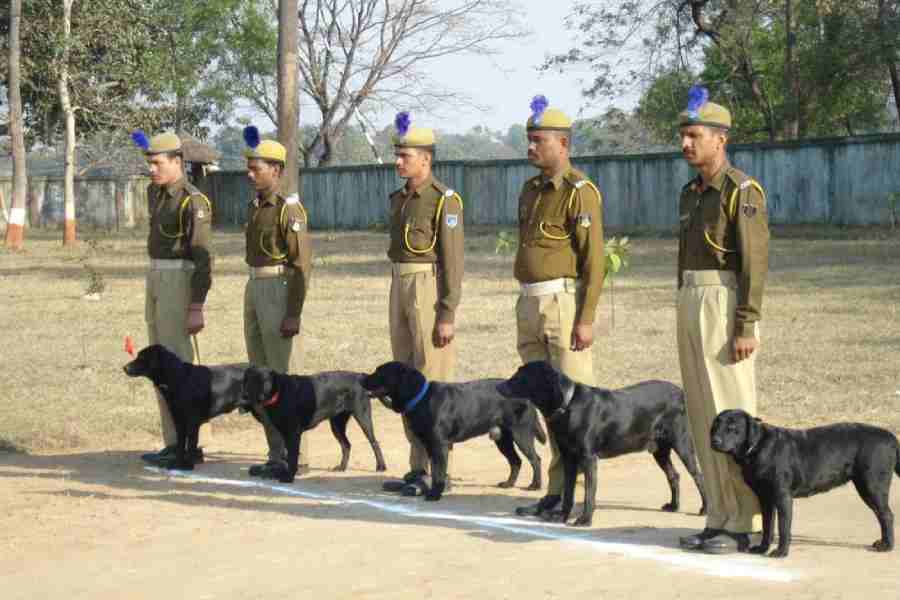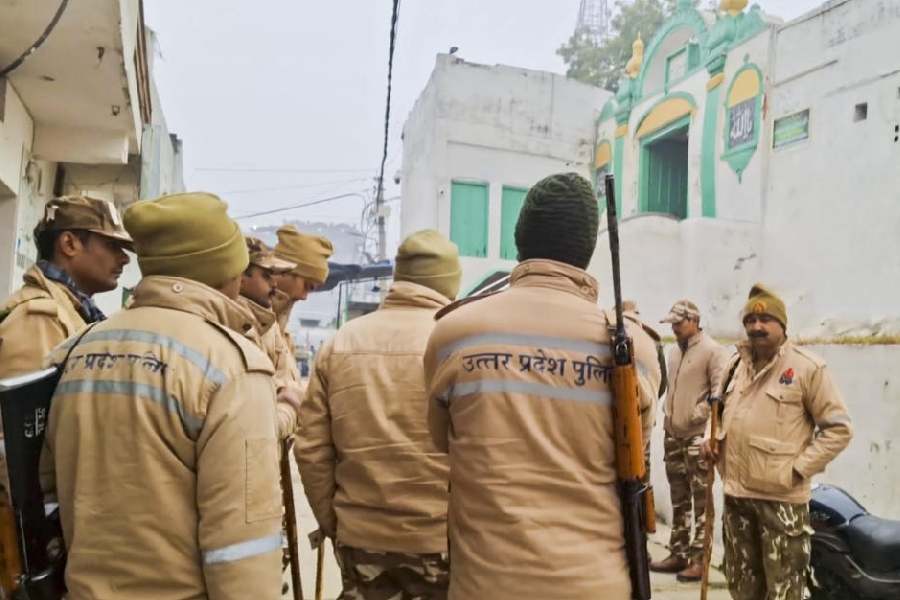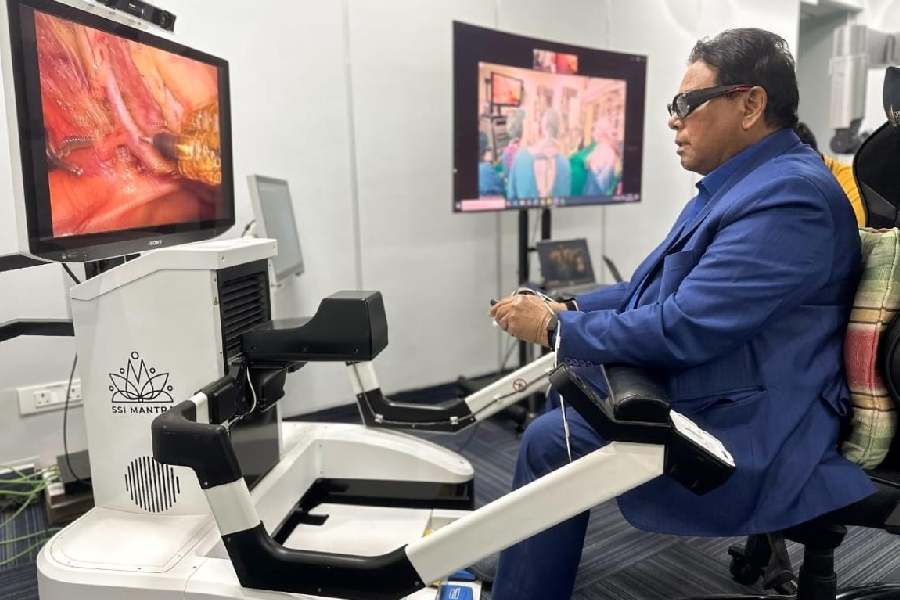President Droupadi Murmu led the nation in paying homage to the founding fathers of the Indian Constitution on the 75th anniversary of its adoption on November 26. She noted that “the Constituent Assembly accomplished the huge task of framing the constitution for a newly independent country. On that day, through the Constituent Assembly, we, the people of India, adopted, enacted and gave to ourselves this Constitution.” Often overlooked, and it was so on this occasion too, are the formidably difficult circumstances which prevailed in the country when the Constitution was framed; hence, the accomplishment of the Constitution-makers was all the greater.
The Muslim League, aided by the departing British, had succeeded in ensuring that the price of freedom was the Partition. That process led to the movements of huge numbers of people from their homes and unimaginable carnage and butchery. This led the administration of a newly-independent country — technically still a British dominion though independent in its functioning — to face the vast and complex challenge of settling lakhs of refugees and of assuaging their justified anger. In addition, the government of the independent country had to integrate the princely states within the Union, a task made incredibly complex by the British Parliament making them ‘independent’ in the India Independence Act, 1947 under which it transferred power to the dominions of India and Pakistan.
Along with the domestic tasks of stabilising India and changing the habits of its administrative structures away from their colonial moorings, the country had to also almost immediately wage war and learn painful lessons about the cruel realities of international realpolitik. While remaining conscious of what was happening around them, the Constitution-framers had to insulate themselves from these goings-on as well. For their task, above all, was to provide an enduring vehicle to take a feudal and segmented society and polity with a stunted economy onto progressive paths so that India could take its ‘rightful place in the comity of nations’.
It is a tribute to the Constitution-makers and the government of independent India that they were not swayed by the passions that had been let loose in those dreadful years but remained true to the values of the main current of the freedom movement which finds expression in the Constitution’s Preamble, the chapter on Fundamental Rights, and the Directive Principles of State Policy. The Indian people must always keep in mind, especially in our present contentious and divisive times, that the Constitution-makers completely rejected any notion of a particular faith or cultural tradition becoming the basis of India’s nationalism and the treatment of its citizens. This could not have been an easy task because of the turmoil of the times but in their sagacity, they kept their eyes firmly focussed on the future and did not dwell on the conflicts of centuries past. Nor did they allow the bitterness of the British colonial experience cloud their vision; they adopted the British constitutional system as the basis of governance.
It is that clarity of vision that is needed today when India, despite becoming the world’s fifth-largest economy, has ‘miles to go’, especially to fulfil the prescriptions of the Directive Principles which instruct the State in Article 39(c) of the Constitution “that the operation of the economic system does not result in the concentration of wealth and means of production to the common detriment”. There is no doubt that disparities in wealth and income have increased in the country, particularly since it changed its economic course in 1991. That course correction was needed, but it is doubtful whether the political class then or later had contemplated that India’s uber rich would flaunt their wealth in the manner in which some of them do today. As the nation marks the 75th anniversary of the Constitution’s adoption, there is a need to reflect on this aspect for the Directive Principles may not be enforceable by the courts but they remain ‘fundamental’ to the governance of the country as stated in Article 37.
During her address, President Murmu said, “Such celebrations provide us with opportunities to take stock of the journey so far and plan better for the journey ahead. Such celebrations strengthen our unity and show that we are all together in our efforts to achieve the national goals.” The president’s words are incontrovertible but will there be an introspection by the political class, especially the ruling dispensation? The Preamble emphasises unity which the president hopes will be strengthened. Will that happen if the notion of ‘a thousand years of slavery’ is constantly asserted and slogans are raised during elections that can only consolidate sentiments which the founding fathers of the Constitution eschewed when the Indian subcontinent had been hurled into the fires of unspeakable social violence? Yes, the marauders who invaded India during the medieval period scarred the memory of people of faiths other than their own. The scars remain till today. But the path to get rid of the scars is not by scratching them but by turning India into a land which is at the forefront of advanced knowledge, including in pure science and technology as well as their applications for popular welfare.
That is the India that the world will respect — forward-looking, a major science and technology power, strong, stable, prosperous, where poverty has been eliminated. That will happen only if the essence of the Constitution is pursued.
There is no greater instrument of India’s soft power than its Constitution provided its provisions are implemented in letter and spirit. This does not imply that India’s heritage is not important and should not be promoted. However, the main theme of the Indian national renaissance is embodied in the Constitution of India, which inspired newly de-colonised countries after the Second World War. Today, too, it can positively motivate peoples abroad; it should be considered the foremost instrument in the arsenal of our soft power. But that would, of course, require all elements of the Indian State to completely adhere to its values.
Vivek Katju is a retired Indian Foreign Service officer

